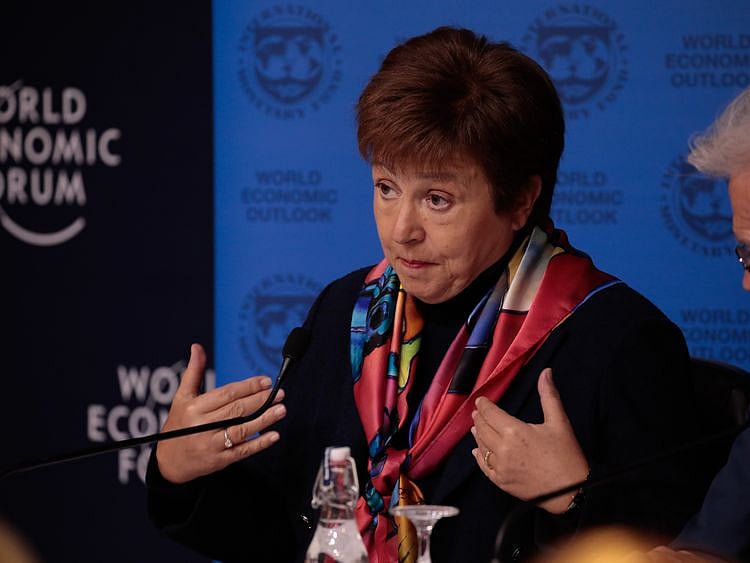IMF chief urges debt-laden nations act now to avoid problems
Vations with high levels of dollar debts need to extend maturies ahead of Fed rate hike

Washington: The International Monetary Fund’s chief urged nations with high levels of dollar-denominated debt to try to extend maturities now to lessen pressure as the Federal Reserve raises interest rates.
Managing Director Kristalina Georgieva said that her worry is greatest for low-income countries because 60 per cent are in debt distress or in danger of reaching that point. She predicted a more difficult year ahead for policy makers based on the differences between nations and the nuance of the solutions required, and that 2022 will be like “navigating an obstacle course.”
“Our message to countries with high levels of dollar-denominated debt is ‘act now,’” Georgieva said on Friday during a virtual panel at the World Economic Forum, alongside European Central Bank President Christine Lagarde and Japan Central Bank Governor Haruhiko Kuroda. “If you can extend maturities, please do it. If you have currency mismatches, now is the moment to address them.”
“We have to be careful how we also support those that without international support are going to be in deep, deep trouble,” she added.
Covid-19 has dealt a major blow to world’s poorest countries, causing a recession that could push more than 100 million people into extreme poverty and resulted in record-high debt levels, according to the World Bank. The challenges are mounting with the omicron variant, which is driving a new wave of infections.
Meanwhile, the Federal Reserve is poised to raise interest rates for the first time in more than three years with U.S. inflation the fastest in almost four decades, spurred by consumer demand and supply-chain disruptions.
The panel underscored the differing challenges that countries face two years into the pandemic. Kuroda said that Japan must continue with extremely loose monetary policy because unlike in other major economies, inflation remains too slow. Lagarde said that the ECB has reason to be acting less aggressively than the Fed because it expects inflation in Europe to slow as supply-chain bottlenecks are resolved.
Paulo Guedes, the economy minister in Brazil, where the annual inflation rate has climbed to 10%, said that he believes price growth will be a “real problem very soon for the western world.”
“My fear is that the beast is out of the box,” he said. “I don’t think inflation will be transitory at all.”
Georgieva warned that while the IMF expects the global economic recovery to continue in 2022, it’s losing momentum. The rebound faces headwinds from Covid-19 infections, inflation that’s proving more persistent than anticipated, and a record $226 trillion in debt, she said.
The IMF is set to release an update of its World Economic Outlook on January. 25.
Sign up for the Daily Briefing
Get the latest news and updates straight to your inbox
Network Links
GN StoreDownload our app
© Al Nisr Publishing LLC 2026. All rights reserved.